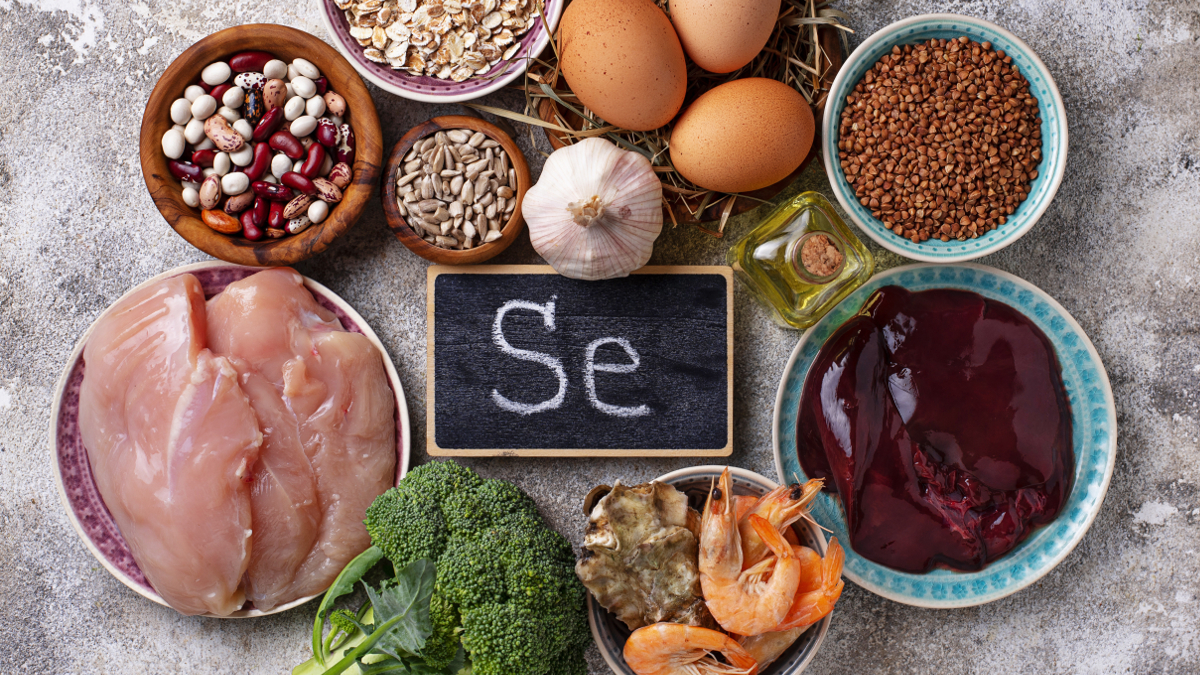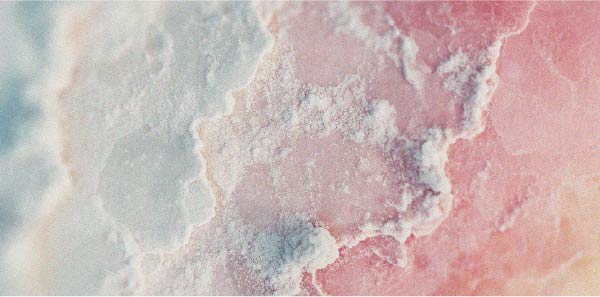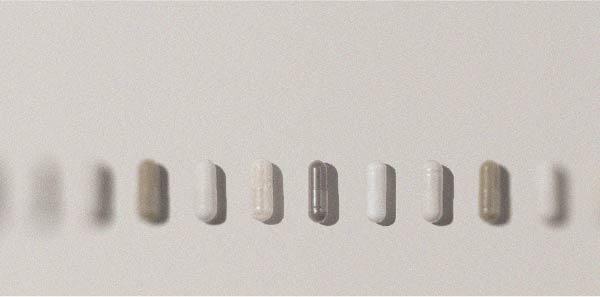Selenium: what are its benefits and in which foods is it found?
Selenium is both a trace element and a bio element that is absolutely essential for health. What exactly is it, what does it do and where is it found?

A highly specific metalloid trace element
Selenium is a chemical element with the symbol Se, discovered by Swedish chemists in the 19th century. It is closely related to tellurium, a compound named after Tellus, the Roman goddess of the earth. Similarly, the name selenium is taken from Selene, the Roman goddess of the moon.
Light-sensitive, selenium has been used for many years to produce the photoelectric light meters in cameras and is still used for making photovoltaic or solar cells. In dermatology, selenium sulfide is used as anantifungal, etc. In short, it’s a remarkable metalloid with multiple properties.
It took several years of research before it was discovered that selenium was naturally present in soil everywhere in the world to a greater or lesser degree. This is how it finds its way into our diet: it is first taken up by plants and then by the animals that eat them.
An antioxidant, pro-immunity mineral, good for the hair and nails ...
Which is obviously a good thing, given that it’s essential for normal physiological function.
In fact, it is a precursor of certain enzymes the key function of which is to scavenge free radicals. As such, selenium plays an important role in promoting the longevity of our cells, which is why it’s considered to be one of the most powerful antioxidants you can consume. (1-2).
According to the European Food Safety Authority, selenium helps to:
- ensure normal immune system function;
- protect cells from oxidative stress ;
- ensure normal thyroid function;
- maintain healthy hair and nails ;
- ensure normal sperm production (3).
Which foods are high in selenium?
The best source is seafood: monkfish, oysters, mackerel, tuna, sardines, mussels, scallops, and lobster are all high in selenium.
It is also found in meat, offal and eggs, as well as in oilseeds and nuts such as macadamia nuts, hazelnuts and almonds.
However, the precise levels of selenium in each of these foods is usually impossible to predict. Knowing exactly how much selenium is provided by a particular foodstuff requires detailed analysis. Indeed, the amount of selenium present in food depends on its level in the soil and distribution of selenium is uneven.
Daily intake and selenium supplements
The recommended daily intake of selenium is normally around 200 mcg.
We’d therefore recommend the supplement Selenium which provides exactly this amount each day.
Note: selenium supplements should not, however, be taken continuously or at excessive doses.
References
- Selenium and human health, Prof Margaret P, Rayman DPhil, The Lancet, Volume 379, Issue 9822, 31 March–6 April 2012, Pages 1256-1268
- https://efsa.onlinelibrary.wiley.com/doi/epdf/10.2903/j.efsa.2009.1220
- The role of selenium in thyroid hormone metabolism, John R. Arthur, Revue canadienne de physiologie et pharmacologie, 1991, 69(11): 1648-1652, https://doi.org/10.1139/y91-243
Keywords
5 Days
great products and prices
great products and prices
Marie
11 Days
Easy to navigate site
Easy to navigate site, had what I was searching for, good price. easy order-check out
James Tucker
17 Days
My skin is clearing up nicely!
Pretty good for my skin so far.
Christian
19 Days
The new packaging is excellent
The new packaging is excellent - finally! No more squashed boxes and torn envelopes.
GORAN
20 Days
Great Product
Great Product
Larry Garrett
25 Days
Quick shipping
Quick shipping; good price. No issues!
Mary McCarty
26 Days
Thr product is very good and is helping…
Thr product is very good and is helping me on my health. Then is always on time
LUGO Luz
29 Days
Buying was fine
Buying was fine. I had problems with the website not recognizing my login info, and had to call to get it fixed. Other than that, everything was good.
David S. Clark
29 Days
Your super maca and super ginseng are…phenomenal
Your super maca and super ginseng are phenomenal supplements that compliment each other when taking them together. Fantastic feeling of well-being and lots of mid day energy without the crash.
Keith Mason
32 Days
I have had amazing results with every…
I have had amazing results with every supplement I've purchased. I am extremely satisfied with this company
kirstin Torres
32 Days
Fine products
Fine products . They are on the leading edge of online supplements. The only issue -so far-is they sometime run out of subscription items.
Jason Argos
34 Days
The ordering process is very user…
The ordering process is very user friendly and the products always come in a timely manner.
CARTER Rhonda
36 Days
The price for Dr
The price for Dr. Pero's AC-11 is reasonable and in line with his views. (my former colleague). Keep it pure.
CAMPBELL Clayton
38 Days
Right on every time.
Right on every time.
Arthur Nicholas
41 Days
They are cheaper than everyone else and…
They are cheaper than everyone else and the shipping was fast. Great company.
Patricia Adams




